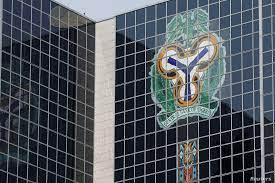The governor of Nigeria’s central bank announced on Monday that errors totaling $2.4 billion had been found in a forensic examination of $7 billion in past-due foreign exchange transactions the bank has been attempting to settle.
In an interview with the local channel Arise TV, the Governor of the Central Bank of Nigeria (CBN), Olayemi Cardoso, stated that the inconsistencies included beneficiaries obtaining unapproved foreign exchange allocations, non-existent organizations, and missing documents.
The largest economy in Africa is suffering from severe dollar shortages, which have caused the value of the naira to drop to all-time lows.
The goal of the audit, carried out by management consultants Deloitte, was to determine whether the naira’s decline was caused by any invalid transactions in the forex backlog.
Cardoso stated, “We found that of the roughly $7 billion, about $2.4 billion had issues.” The central bank would not honor transactions that were not in compliance.
Laptops 1000Approximately $2.5 billion of the backlog has been paid thus far across a variety of industries, such as manufacturing, energy, and aviation. Cardoso promised that the remaining $2.2 billion will be paid off quickly.
“A $2.2 billion outstanding balance is not the same as a $7 billion balance. I think this is where the road ends. We’ll resolve everything quickly and go on,” Cardoso declared.
The CBN last week placed a ceiling on banks’ net open positions in foreign currency, setting a zero limit for long positions and a 20% cap for short positions relative to shareholders’ money.
As one of several steps to increase dollar liquidity, it also mandated banks to sell off surplus assets right away.
Lenders are encouraged to create foreign exchange contingency funding agreements with other institutions, and the central bank now mandates that banks have sufficient liquidity to satisfy maturing foreign exchange liabilities.
“Our focus has been to start looking very aggressively at the supply side of the chain,” Cardoso stated.
The central bank, which has committed to a more traditional monetary policy under Cardoso, wants to reduce inflation to 21% from its 27-year peak of 28.92% in December.




















